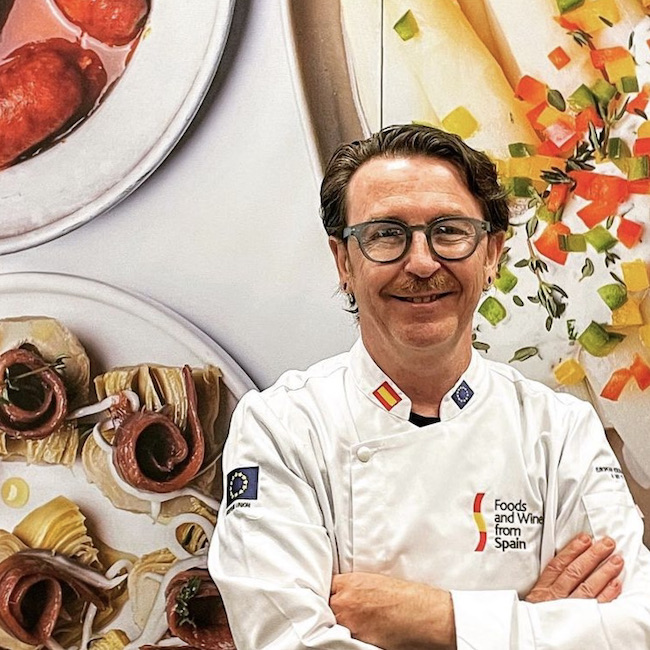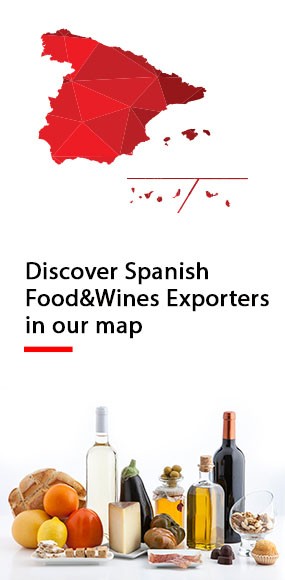.png.transform/rendition-xs/image_image%20(1).png)
Chef Antonio Ortuño: Life as a Spanish Private Chef in NYC
Focused on a healthier, Mediterranean diet with a contemporary touch, he has been cooking out-of-the-box renditions of traditional Spanish recipes for 12 years
Chef Antonio Ortuño has deep-seated roots from the Mediterranean western coast of Alicante (Spain) where he was born. Spain’s traditionally unique cuisine and regional specialties as well as the country’s rich culture and history are what fuel his passion to continue exploring the region’s many recipes and re-creating his own for the world to explore. Read more about Chef Antonio and his experience as a private event chef, here.
1. Can you share how your roots from the Mediterranean western coast of Alicante (Spain) influence your cooking?
I grew up with fresh products with a Mediterranean diet in the family home. Since my childhood, the kitchen has held a deep fascination for me and I have maintained the Mediterranean influences in my cooking 12 years into my career as a private chef.
2,.How do you adapt your menus as a private chef to suit your clients preferences?
I tell my clients we can work off a blank canvas together to design the event of their dreams and once they share the event goals or theme, preferred date(s) and venue, dietary restrictions, and any food preferences — I craft a seasonal, market-inspired menu and recommend unique experiences for the guests that fit the vision. When my clients know what they want in their private events, I simply adapt the menus to different lifestyle preferences such as vegans, vegetarians, and gluten free to ensure all dishes meet dietary restrictions, while remaining tasteful and flavorful.
3. What foods have you found New Yorkers like from Spain?
I have found that New Yorkers love traditional tapas (including gambas al ajillo) and paella to share as a group. Spanish wine is also rising in popularity, specifically cava, albariño and even verdejo are commonly paired with these classic Spanish dishes during the summer months.

4. What inspired you to focus on the healthier Mediterranean diet?
I am very interested in my cuisine and highlighting the real flavors with top of the line healthy products. I promote organic nutrition, which supports the protection of our natural resources, as well as offers many benefits for our wellbeing and our overall health. My goal is to deliver healthy and delicious meals tailored to my clients palate and wellness goals.
5. How do you incorporate this to your private menus?
I get creative and add a contemporary touch to all dishes - it's easy when my clients know my cuisine style and allow me to incorporate healthy Mediterranean aspects throughout. I prioritize cooking with organic products that do not use additives and substances from chemical synthesis.
6. What are some of your out-of-the-box renditions of traditional Spanish dishes?
Mediterranean cuisine is simple and does not need much presentation, which allows me to get creative with the ingredients. Some dishes I love making and classify as out-of-the-box renditions is my take on a gazpacho de sandía (Watermelon Gazpacho) with ingredients such as fresh watermelon, garlic, cucumber, vinagre de Jerez, and arbequina olive oil, vieiras envueltas en jamón ibérico (Scallops wrapped with Jamon Iberico) and a classic dessert of pan de Calatrava con helado de aceite de oliva (Spanish bread pudding with extra virgin olive oil from ice cream).
7. In your opinion, what are the most important Spanish ingredients?
I believe that garlic, parsley, anchovies, seafood, and fresh vegetables are the key ingredients when cooking Spanish cuisine. In classic pintxo dishes I generally add EVOO, parsley, garlic and artichokes. A classic and very crucial ingredient utilized across Spain is Extra Virgin Olive Oil. I use EVOO in more dishes than you think, even in desserts as I mentioned in the pan de Calatrava con helado de aceite de oliva (Spanish bread pudding with extra virgin olive oil from ice cream). When crafting dishes that include jamón I will typically incorporate tomatoes for a result such as pan con tomate con jamón serrano.
8. What is the most important aspect of being a private event chef?
I believe that as a private event chef you must be modern and create out of the box renditions. Additionally, it is crucial for a chef in a private event setting to be very hygienic and ensure cleanliness throughout the process. Lastly, since my clients are the event hosts, I encourage them to enjoy their time to entertain their guests, while I handle the rest.

